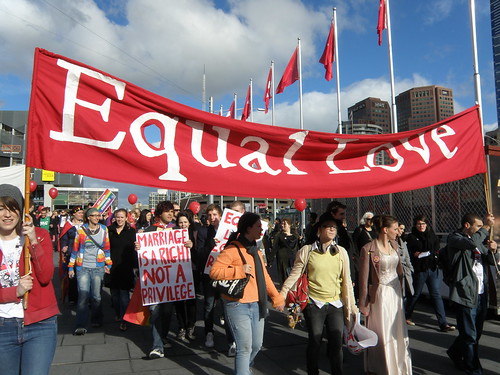Portugal: What's behind the success of the Left Bloc?
Portugal’s Left Bloc has achieved a major breakthrough in the last five months.
Canada/Quebec: Québécois denounce Supreme Court attack on language rights
By Richard Fidler
November 9, 2009 -- The October 22 ruling by the Supreme Court of Canada overturning yet another section of Quebec’s Charter of the French Language (CFL) has been met with angry protests by a broad range of opinion in the French-speaking province.
The court declared unconstitutional a law adopted unanimously by Quebec’s National Assembly in 2002 that closed a loophole in the charter being used to circumvent the requirement that Quebec students attend French-language schools. In effect, the judgment restores free choice of language of elementary schooling for parents rich enough to send their kids for a few years to private schools not funded by the Quebec government before enrolling them in English public schools.
Four goals for a new left party
By Duncan Chapel
November 14, 2009 – Socialist Resistance – The people on this platform share a lot of ideas.
Canada: Vale Inco strike shows need for international action

By Marc Bonhomme, translated by Richard Fidler
A Québécois militant, member of Québec solidaire, discusses the global implications of the strike by 3500 workers at Vale Inco, the world’s largest nickel mine, in Sudbury, Ontario.
November 11, 2009 -- Socialist Voice -- In France’s South Pacific colony of New Caledonia [Kanaky], a small delegation of Vale Inco strikers from Sudbury, in northeastern Ontario, most of them Franco-Ontarians, met in October with the union at the island’s Vale Inco nickel mine, due to open in 2010, although it threatens a UNESCO nature reserve. The newspaper Nouvelles calédoniennes reported the encounter, in its October 31 edition:
China today: socialist or capitalist?
November 13, 2009 -- Links International Journal of Socialist Renewal has published a number of articles on the Chinese Revolution and the subsequent restoration of capitalism in China.[1] This article aims
`Freedoms won, freedoms lost' -- left views on the fall of the Berlin Wall

November 15, 2009 – For the past few weeks the international capitalist mass media has been awash with triumphalist hoopla about the so-called “collapse of
Capitalism, sexism and queerphobia’s social basis

By Jess Moore
There are social expectations on everyone, men and women, to act in particular ways based on our sex. This is bad for everyone because it’s stifling, but it’s worse for women and queers.
These gender stereotypes and roles put men first and women second:

[Klik di sini untuk artikel-artikel Links dalam Bahasa Indonesia]
oleh Trent Brown
[Pernah dimuat di http://links.org.au/node/1260, dan diterjemahkan ke dalam bahasa Indonesia oleh Data Brainanta, Staff Dept. Kaderisasi dan Komunikasi Massa DPP Papernas.]
Britain: The Lucas Aerospace workers' plan -- A real Green New Deal
By Hilary Wainwright and Andy Bowman
Convert the ailing car industry to socially necessary production!

With the economic recession and environmental crisis alternative plans for socially useful, sustainable production have never been more relevant argues Lars Henriksson.
When the financial shit hit the fan last year the overproduction in the auto industry became visible. In the Swedish auto industry the proportions between fan and shit was especially problematic. The crisis involved two of the world’s smallest mass producers, both owned by troubled US corporations, and both producing large, fuel consuming semi-luxury cars. In a country of 9 million it was like having two bankrupt car companies and their chain of sub contractors plus two crisis-hit truck companies in London.
The auto crisis of course became a big political issue in Sweden and still is. As elsewhere in the world there were two principle lines of argument in the mainstream discussion about what should be done.